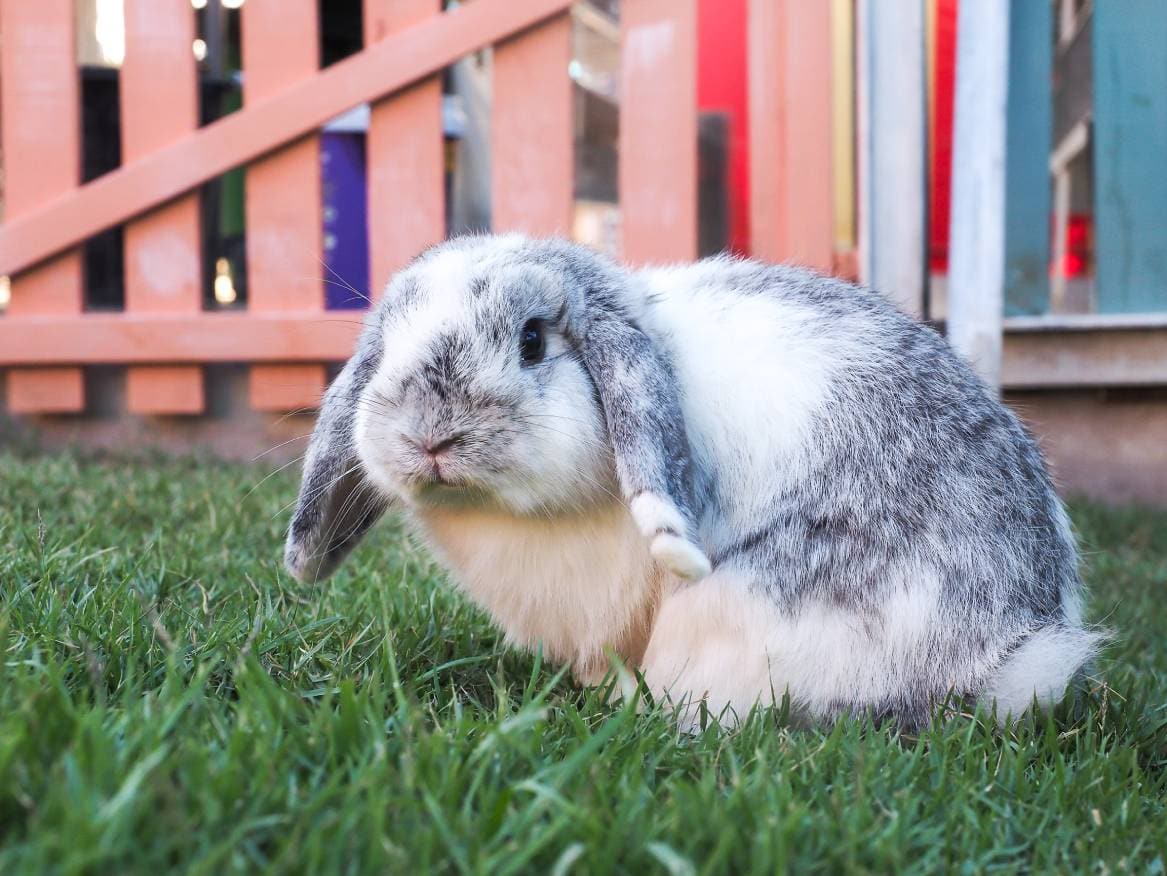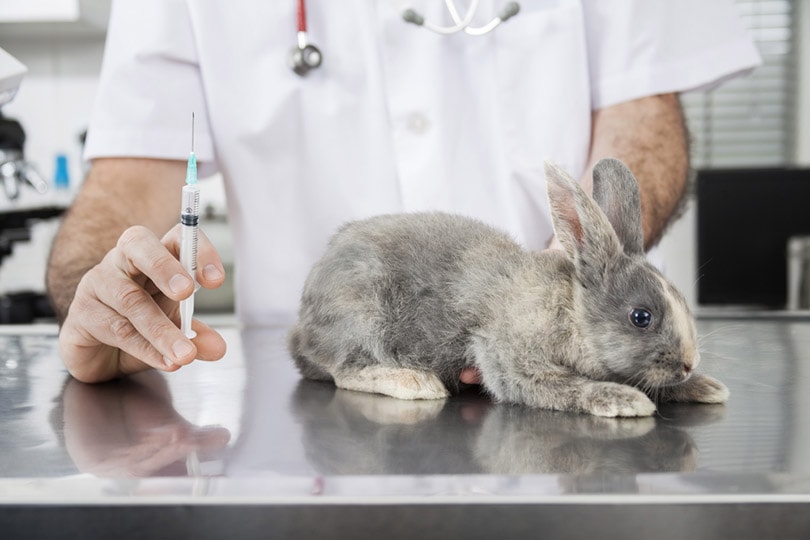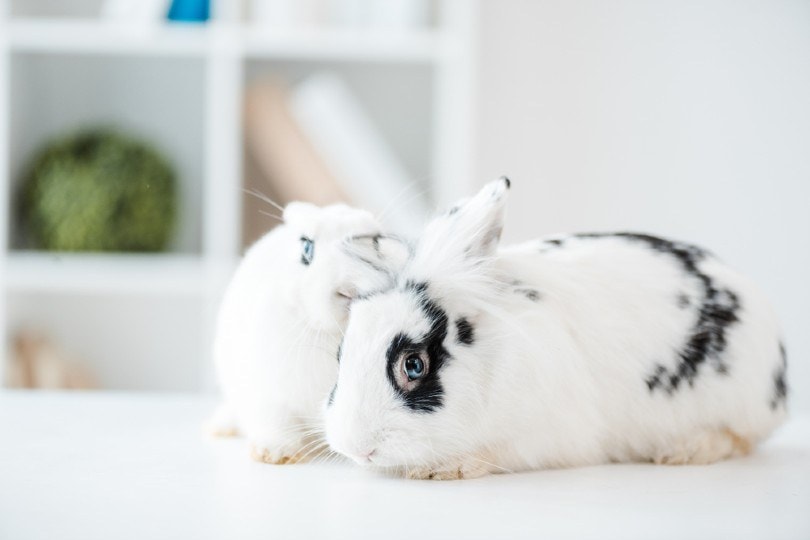
As the saying goes, rabbits are notoriously good at reproduction! They can and will achieve remarkable feats in search of a mate, and often our best laid plans and hutches are no match for their desires. Rabbits can also become reproductively active at very young ages, often less than six months old. These factors all mean that sometimes, accidental mating and unwanted pregnancies do happen in our pet rabbits. In this article, we shall explore what we can do about it when the unexpected happens.
How Do I Stop My Rabbit Becoming Pregnant?
Prevention is always better than cure. The simplest option to avoid any accidental pregnancy is to only keep one sex of rabbit. Keeping two females or two males means they cannot reproduce, although sometimes this does mean more fighting between them. Bonded brothers or sisters are often a good combination. It is important to be very careful when introducing rabbits to one another if they have not grown up with each other.
The other safe option is to have your rabbits neutered at a young age. Neutering of males and females is a safe and routine procedure and will permanently stop any risk of reproduction. A neutered male and neutered female are also the most stable pair combination and are least likely to fight. Neutering also eliminates the risks of testicular cancer in males, and womb or ovary disease in females. Rabbits can be safely neutered at your local veterinary practice from between 4-6 months old – contact your veterinarian for advice.

Help, My Rabbits Accidentally Mated! Is There a Morning-After Pill for Rabbits?
Unfortunately, there is no ‘pill’ for rabbits to end any potential pregnancy immediately, as there is in humans. There are a couple of options that can be provided only by your veterinarian, but these are ‘off-license’ or ‘off-label’ medications. What this means is that these products are not designed specifically for rabbits and have not been extensively tested in rabbits, whereas other rabbit-specific drugs will have more information behind them. Often this means that these products used off-label can be a bit more variable in terms of safety and effectiveness. Rest assured, though; your vet would not offer them if they felt that the risk outweighed the potential benefits. It is vital to have a good conversation with your veterinarian about the options and then make the best, informed decision for your rabbits and your circumstances. Pregnancy itself, after all, is not risk-free and may especially be dangerous to the health and well-being of a very young female.
What Can My Veterinarian Offer for Unwanted Pregnancy in Rabbits?
One option is to use an injection that is designed to end pregnancy in dogs. The drug is called Aglepristone, and this is given to dogs as two injections 24 hours apart. Some experimental studies have shown that aglepristone injections used in the same way in rabbits are also effective at ending pregnancies. The injections need to be given at least a week after the mating took place. If all goes well, this drug should have no long-term complications and usually safely solves the problem. It works by switching off the hormone progesterone, which is the main hormone responsible for maintaining pregnancy. The main risks are that it doesn’t end the pregnancy, and that the aborted pregnancy can become infected and problematic. The injection itself can sting when it is given, and it can cause infections or abscesses under the skin in rare cases. Aglepristone is strictly a veterinary only drug and should only be given by a veterinarian, after a good discussion of the risks and benefits.

Prostaglandins
Another option is to make use of drugs containing Prostaglandin F2 alpha, or similar chemicals. Prostaglandins are natural messengers in the body. Giving an excess of F2 alpha, either by injection or into the reproductive tract itself, uses the messenger system in the body to switch off the part of the ovary that maintains pregnancy. This should then end the pregnancy. Again, these drugs would need to be given at least a week after the mating, and again strictly by a veterinarian. If all goes well, these drugs again usually have no long-term consequences and are short lived in the body. The risks are mainly based around infections in the womb or problems with delivering any parts of the unwanted pregnancy. Prostaglandins are licensed and used fairly routinely in cattle to regulate their breeding cycles and to abort any unwanted pregnancies. They are not licensed in any pet animals.
Dexamethasone
A third option is to use a high dose of a steroid called Dexamethasone. These drugs are licensed in many animals, both pet and farm, and used routinely as anti-inflammatory drugs. Steroids are produced naturally towards the point of birth by the female reproductive system and stimulate the normal progression of labour. Giving high doses of steroid by injection induces labour early, and so may help to end unwanted pregnancy. Steroids are less reliable especially early in pregnancy but are more effective as time goes on. If all goes well, these drugs again should not cause long term problems. The main risks are around delivery of the unwanted pregnancy.
Dexamethasone itself can pose a risk in rabbits because it really lowers the immune system and can make rabbits more vulnerable to other infections. It can also induce stomach ulcers. Steroids have lots of roles around the body and can have a variety of side effects, although these are usually seen when steroids are used over a longer period, not just as a one off.
All these drugs are strictly off-label and based on a risk: benefit assessment between you and your veterinarian. They should only be administered by a veterinarian – it is extremely dangerous to try and do this yourself without professional guidance. Bear in mind that many of these chemical mechanisms are shared between rabbits and humans, and so all these drugs also pose a health risk to humans, especially pregnant women.

Final Thoughts
Rabbits are driven by nature to mate and can reproduce at a very young age. Sometimes despite all our best efforts, accidental mating can occur and may pose a risk to female rabbits, especially if they are very young. In these situations, there are several medications available through your veterinary clinic that can act as a ‘morning-after pill’ although all should be given about a week after the mating occurred.
All these medications are off-label (off license) and should only be given by a veterinarian after a thorough discussion with you about the risks and benefits to each option. Informed consent is essential in these circumstances because no option is risk free. Prevention is always better than cure, and so consider carefully which sexes you buy and then plan to neuter as soon as possible.
- You Might Also Be Interested In: Is There A Morning-After Pill For Cats? Our Vet Answer
Featured Image Credit: Napa Chaichanasiri, Shutterstock









